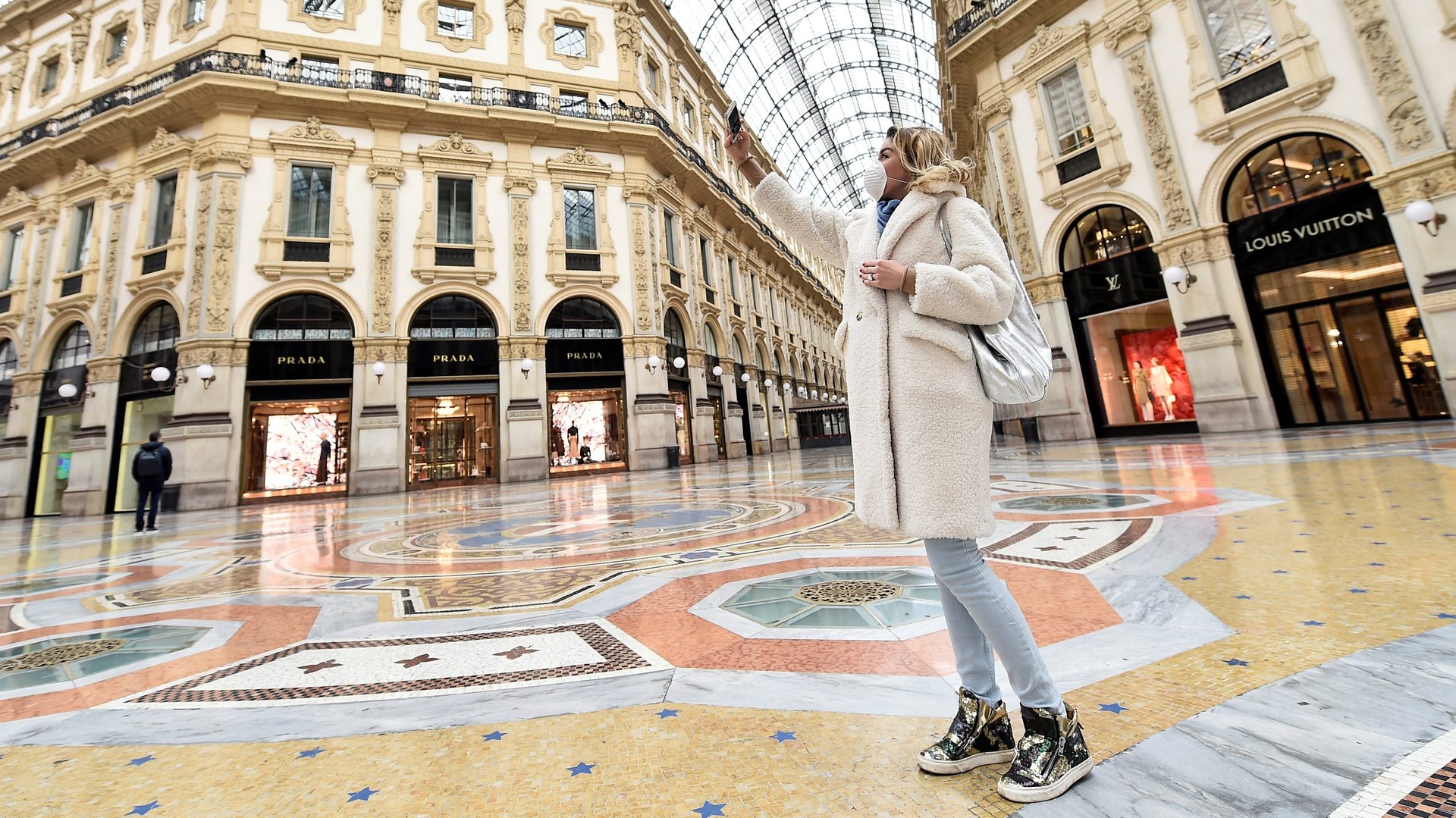Italy’s luxury manufacturing is grappling with a nationwide lockdown
“Made in Italy” is a sign of prestige for the global luxury companies that manufacture clothes, bags, and shoes in the country.


“Made in Italy” is a sign of prestige for the global luxury companies that manufacture clothes, bags, and shoes in the country.
Now the factories behind that work are contending with the spread of coronavirus through Italy. That includes a government-mandated lockdown to contain the disease, and falling work orders as global luxury sales suffer.
On March 8 the government put 26 provinces in the country’s northern region under quarantine to halt the outbreak. That area alone is home to more than half the country’s textile and apparel factories, according to a research note by investment firm Bernstein that analyzed census data. But Italy has now taken the extraordinary step of putting the entire country—some 60 million people—under lockdown as it tries to halt the virus, which has claimed more lives in Italy than any other country outside China.
The restrictions prevent all but essential travel. Companies are largely able to carry on with business, though they’re asked to allow staff to take leave or find alternate work arrangements so they don’t have to travel to the office.
At factories producing for the fashion sector, work mostly appears to be continuing, with heightened precautions. Candiani, a denim mill that supplies high-end clients such as Hugo Boss and Stella McCartney, put a notice on its website that production and deliveries are occurring as normal, but it has limited visits from suppliers and limited travel abroad for its staff. Other factories told WWD (paywall) they were working too, though Benetton said it had closed its plants in the Veneto region as part of the lockdown for the area.
The situation is one luxury companies are navigating. Roughly 88% of suppliers managed by Kering—owner of labels such as Gucci and Saint Laurent—are located in Italy, according to the company (pdf). At Prada, 19 of its 22 owned manufacturing facilities are in Italy, its latest annual report said. Salvatore Ferragamo noted in 2018 that Italian factories accounted for as much as 97.4% of its products, with nearly all of its accessories coming from Italian facilities.
Flavio Cereda, an analyst at Jefferies, told Reuters he’d seen no signs of supply chain issues yet, but a prolonged disruption could cause problems.
Italy’s high-end manufacturers face another risk, too. The coronavirus outbreak has curtailed luxury spending as wealthy shoppers stay home and cancel plans to travel to shopping destinations. A survey of luxury CEOs and CFOs estimated the industry could lose sales totaling $43.4 billion, limiting total 2020 sales to as low as $350 billion. Without demand to satisfy, companies don’t need to make as many products as usual.
One small producer of handbags for Gucci told Reuters it normally makes up to 1,000 bags a month for the brand. The number fell to 450 in February, and there were no orders for March, April, or May so far. “The company has been brought to a standstill and we are having to put our workers on temporary redundancy schemes,” the person said, asking to remain anonymous.
Other manufacturers Reuters spoke with reported drops in orders from Louis Vuitton, Prada, and Ferragamo. One source whose family owns a manufacturer that makes bags for Kering and LVMH, the luxury group behind Louis Vuitton, said concerns are growing with the risk of further disruptions in Italy. His company is large and has a diversified list of clients, but, he said, “some of the smaller suppliers are not going to make it.”